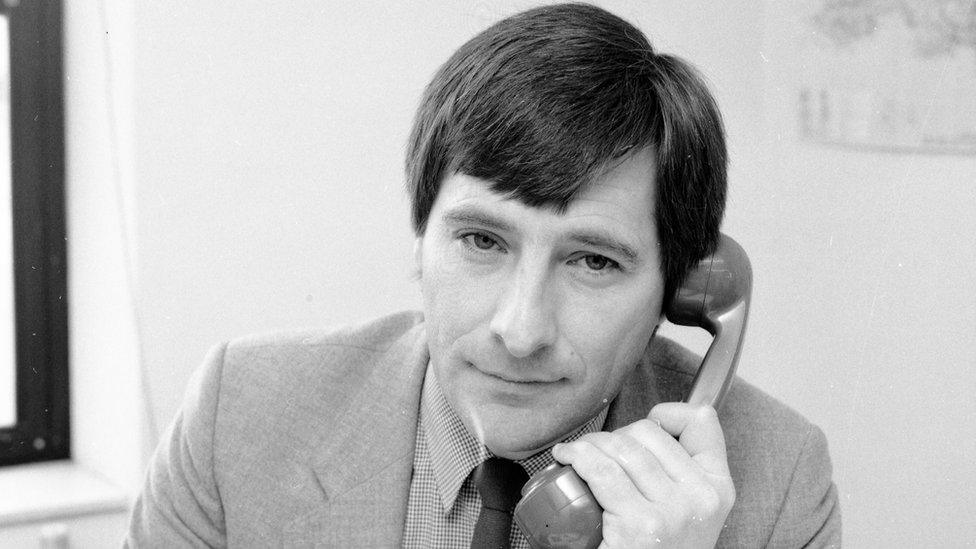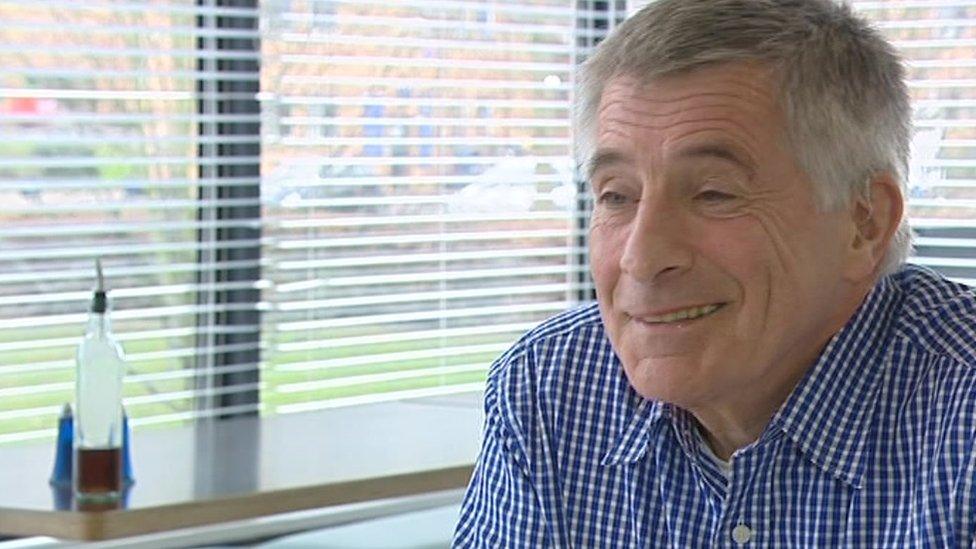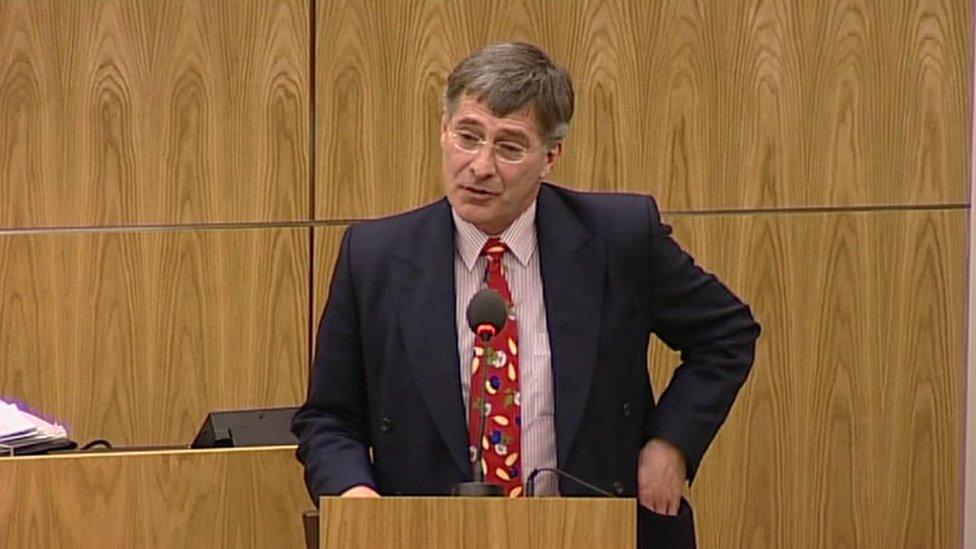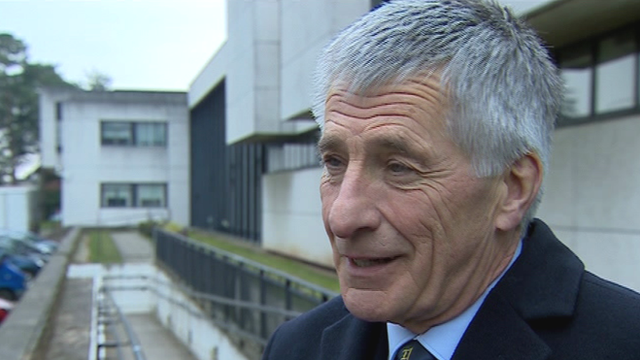Former Conservative politician Rod Richards dies
- Published

Before turning to politics, Rod Richards worked as a journalist at BBC Wales
Rod Richards, the former Welsh Office minister and Conservative leader in the assembly, has died aged 72.
He came to prominence as a newsreader with BBC Wales, following a period with the Royal Marines.
In 1992 he was elected to Parliament, but lost his seat five years later, and switched to the Welsh Assembly.
He died on Saturday night at the Marie Curie Hospice in Penarth, Vale of Glamorgan, after a long battle with cancer, his family said.
In a statement, they said he passed away peacefully and was surrounded by his family.
"Rod's friends and family will remember his quick wit, kindness and love," it added.
"Dad dedicated much of his life to the service of a country he loved and felt passionate about.
"Rod's surviving three children and eight grandchildren will greatly miss their wonderful father and dadcu.
"The family wish to thank the hospice for their incredible care and compassion, and would ask the media for privacy at this difficult time."

Mr Richards was elected MP for Clwyd North West in 1992
Monmouth Conservative MP David Davies said the pair became close friends in the 1990s.
"His sense of humour never failed and he was able to raise a chuckle when I visited him hours before he passed away," he said.
"His outspokenness did not always win him friends but was a refreshing contrast to the 'tell everyone what they want to hear' approach which seems to have become a hallmark of many in politics since the Blair era."
Welsh Secretary Alun Cairns tweeted, external: "Very sad to learn of the passing of Rod Richards - a man with a great passion for politics. I had enormous respect for the political ability he demonstrated. My condolences go out to his friends and family."
Paul Davies, Welsh Conservative assembly leader, added: "He was an able and talented politician whose career had its ups and downs but he made in indelible mark on Welsh politics and devolution.
"Our thoughts are with his loved ones at this time."
Mr Richards briefly led the Conservative group in Cardiff Bay before being forced to stand down, and he quit the assembly in 2002 due to his problems with alcohol.
In 2013 Mr Richards decided to join UKIP, saying he was "disillusioned with mainstream parties".
'Passionate politician'
A controversial character, Mr Richards was born in Llanelli in 1947.
After two previous attempts to reach Parliament, success came in the 1992 general election when he was elected MP for Clwyd North West.
He was appointed a junior minister in the Welsh Office but was forced to resign in 1996 following allegations about his private life.
In the Commons, his combative style got him in trouble with the Speaker, Betty Boothroyd, for shouting "liar" at the Neath MP Peter Hain. He was forced to apologise to both Mr Hain and Ms Boothroyd.
And his boss, the Welsh Secretary John Redwood, was forced to apologise on his behalf when he called Labour councillors "short, fat, slimy and corrupt".
In the 1997 Labour landslide he lost his parliamentary seat and turned his sights to the new National Assembly for Wales.
In the 1999 election he was defeated in his constituency seat but became an AM via the regional top-up list.

Mr Richards, pictured in the Welsh Assembly, was known for his combative style
Gareth Hughes, political commentator and former ITV Wales journalist, said Rod Richards was a "passionate politician".
"If you crossed Rod Richards, you knew you had," he said.
The politician was to the right of the "old Conservative party", said Mr Hughes, "and would have been very comfortable in the current Conservative party".
"He was very much an establishment person. He certainly didn't want devolution, that was clear. He regarded Westminster as very important. In that sense he was a loyalist to the union."
'The rottweiler'
Mr Richards was the first AM to be sworn in on 10 May.
In a ballot of Welsh party members he became the Conservative party leader in the assembly.
But his tenure was short lived, having to stand down after begin charged with inflicting grievous bodily harm on a young woman, a charge he was later cleared of.
He was a combative politician, dubbed the "rottweiler", antagonising not only other parties but also his own.
His relationship with the Conservative group in the assembly was a fractious one, especially with the then new leader, Nick Bourne.
He sat as an "independent Conservative" until 2002 when he resigned his seat due to problems with alcohol.
A year later he was declared bankrupt which he again linked to his alcoholism.
- Published9 July 2013
